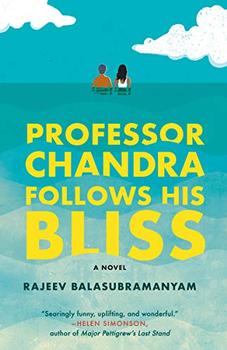Summary | Excerpt | Reviews | Beyond the book | Read-Alikes | Genres & Themes | Author Bio

Early on in the powerful book, American Dream Machine, the twenty-something narrator Nate Rosenwald makes his intentions clear. "This story I have to tell doesn't have much to do with me," he says, "but it isn't about some bored actress and her existential crises, a troubled screenwriter who comes to his senses and hightails it back to Illinois. It's not about the vacuous horror of the California dream. It's something that could've happened anywhere else in the world, but instead settled, inexplicably, here."
This "something," is the fictional story of the rise and eventual irrelevance (if not necessarily fall) of Nate's dad, Beau Rosenwald. Epic in its scope, American Dream Machine narrates the story of how this talent agent made his way to the near top of the food chain with practically no professional skills but plenty of street smarts. The novel is epic in scope as it charts Beau's climb to partnership of one of Hollywood's most successful talent agencies. In 1962, Beau is sent from the New York office of Talented Artists Group to Los Angeles, to make his name there and help out at TAG's California office. In short order, Beau makes friends and enemies, quits the Talented Artists Group, and eventually, with his friend William Farquarsen III, sets up a rival agency, the American Dream Machine
The agency thrives under their guidance. It is mostly during this period that Beau's sons, Nate and his stepbrother, Severin; and William (Farquarsen's son), come of age. Their adolescence is marked by the usual teenage rituals of social fumbles and angst but they find it disorienting when it is played out against the Hollywood backdrop. Now adults, Nate, Sev and William are still trying to shake the weight of all that. "We'd been young and born to such privilege there had never been a reason for any of us to suspect we weren't going to prosper. Until now," Nate says. "The three of us stayed close, but we were busy, each trying to carve out some semblance of private identity, something beyond a relationship to our renowned fathers, and to one another."
Author Matthew Specktor is great at chronicling Beau Rosenwald's story and, equally important, at showing how his rise and fall seem to almost parallel that of all Hollywood. For a while, it gets a little tiring to read of Beau's third, and fourth act of reinvention but the arc of the story is a powerful and compelling one. By the time Beau is on his way out, "it was all CGI, robot cops melting in and out of walls," Specktor writes about Hollywood, "The business seemed to rest now on forgetting. You were no longer as good as your last hit. You were only as good as your next one. What had happened to an industry that used to rely upon memory, that was founded, however tenuously, on some feeling for the elegance, the inextinguishable glamour, of the past?"
It is worth noting that while there are a couple of strong female characters, this is mostly a novel about (though not necessarily for) men. In a publicity interview, Specktor, whose father is talent agent Fred Specktor, and mother was a screenwriter, says he was aware he was telling a story about fathers and sons. "The Hollywood of the 1970s was a very masculine place, and the agency business was too," Specktor points out, adding that he liked the idea of showing what men can be like "when they're alone."
The city of Los Angeles also comes alive in the telling – not just the glamor of Sunset Boulevard but also the more average "hellish neon semaphore of Sky-Bar, and the soon-to-be-shuttered shell of Tower Records."
Even if the entire story plays out against a Hollywood backdrop, at the end of the novel you walk away with the feeling that Nate was right in his early pronouncement: this story could have played out anywhere. The Hollywood setting is almost beside the point. In the end American Dream Machine is a powerful ode to a way of achievement that seems to be a thing of the past. The concept of a "self-made" man as personified by Beau, is fast fading. After all, even rugged individualism doesn't stand much of a chance against the advancing tide of global corporate capitalism. In that sense, this story is universal. What happened to Beau, Specktor seems to suggest, can happen anywhere – be it in glamorous Hollywood or the mill factories in Ohio. It turns out, American Dream Machine is an all-American story as much as it is a Hollywood one.
The novel beautifully illustrates not just how the sun is setting on the myth of self-made individualism but also how, with their feet planted on unsteady ground, the young now have no guaranteed formulas for success. "Life was more like the movies than anyone cared to admit. It was predicated on them, far more than vice versa," Nate says. Fair enough. Except, as he very well knows, not all movies have fairytale endings.
![]() This review was originally published in The BookBrowse Review in April 2013, and has been updated for the
May 2014 edition.
Click here to go to this issue.
This review was originally published in The BookBrowse Review in April 2013, and has been updated for the
May 2014 edition.
Click here to go to this issue.

If you liked American Dream Machine, try these:

Professor Chandra Follows His Bliss
by Rajeev Balasubramanyam
Published 2020
Follow the completely infuriating, utterly charming Professor Chandra as he tries to answer the biggest question of all: What makes us happy?

by Taylor Jenkins Reid
Published 2020
A New York Times bestseller. A gripping novel about the whirlwind rise of an iconic 1970s rock group and their beautiful lead singer, revealing the mystery behind their infamous breakup.
Your guide toexceptional books
BookBrowse seeks out and recommends the best in contemporary fiction and nonfiction—books that not only engage and entertain but also deepen our understanding of ourselves and the world around us.